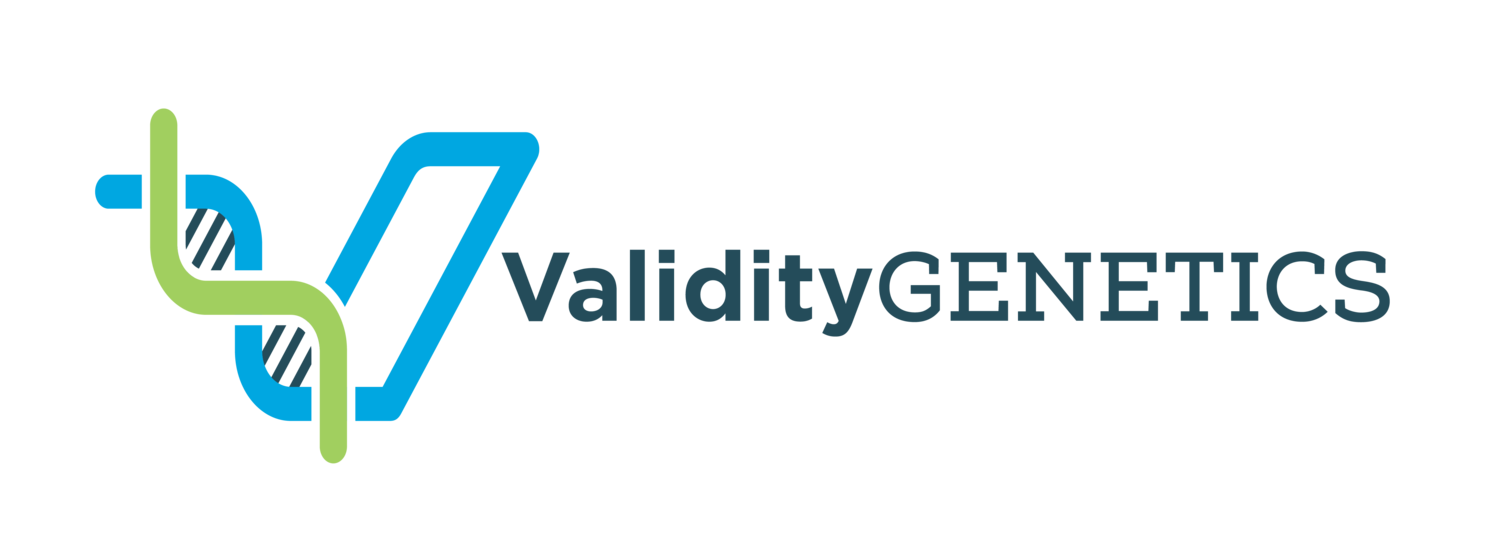Relationship DNA Testing? Understanding the Basics
If you've ever wondered whether you share a biological connection with a family member, relationship DNA testing can give you clear, science-based answers. From confirming parentage to uncovering half-sibling bonds, DNA testing has become one of the most reliable tools for understanding family relationships. But how does it work, and which test is right for you?
In this post, we break down the basics of relationship DNA testing, explore the types of tests offered by Validity Genetics, and help you choose the best option for your situation.
What is Relationship DNA Testing?
Relationship DNA testing involves analyzing genetic material to determine the likelihood of a biological relationship between individuals. It can help answer questions like:
Is this man the biological father of the child?
Are these two individuals full or half siblings?
Is this person biologically related to a grandchild, niece, or nephew?
These answers can have deep personal significance—and in some cases, legal implications, such as in custody or immigration cases.
Why People Use Relationship DNA Tests
People seek relationship DNA tests for many reasons:
Peace of mind: To resolve lingering doubts
Legal evidence: For court or immigration documentation
Family planning: To confirm relations before making key decisions
Adoption or donor scenarios: To locate or confirm relatives
Types of Relationship DNA Tests Offered by Validity Genetics
Here are the main test types and what they’re used for:
1. Paternity Test
Determines if a man is the biological father of a child. The most commonly used relationship test.
2. Sibling DNA Test
Helps determine if two people are full siblings, half siblings, or not related.
3. Grandparent DNA Test
Tests one or both grandparents against a grandchild to infer the relationship, often used when the alleged parent is unavailable.
4. Avuncular DNA Test
Used to test aunts or uncles against a niece or nephew, especially helpful when the parent in question is not available.
5. Twin Zygosity Test
Identifies whether twins are identical or fraternal.
6. Y-STR DNA Test
Examines the Y-chromosome passed down the male line, ideal for tracing paternal lineage.
Explore DNA Testing Options
How DNA Samples Are Collected
Most tests are done with a simple, non-invasive cheek swab. Validity Genetics also allows testing of non-standard samples (e.g., toothbrushes or razors) depending on availability and condition.
Our collection process is designed for accuracy and convenience. Just follow the instructions in your kit, seal the sample properly, and send it back to our lab.
Legal vs. At-Home Testing
At-home tests are ideal for personal knowledge and peace of mind. For legal matters, such as custody or immigration, a chain-of-custody process must be followed, often requiring a professional collector.
Learn more about legal testing
Accuracy and Privacy
DNA tests conducted by Validity Genetics are over 99.99% accurate, the highest scientifically possible. Your privacy is also paramount. All info and test results are held and stored in accordance to AABB, ISO, and many other guidelines. We never share your results without your explicit consent.
Frequently Asked Questions (FAQs)
Q: What relationships can be tested with DNA? A: DNA testing can evaluate parent-child, sibling, grandparent-grandchild, aunt/uncle-niece/nephew, and twin relationships.
Q: Is relationship testing legally admissible? A: Yes, if performed using a court-admissible process, such as chain-of-custody collection and verified ID submission.
Q: Can I use a toothbrush or hair for DNA testing? A: Yes, though success depends on the quality and condition of the sample. Reach out to our support team for specifics for info on our Forensic DNA Testing.
Final Thoughts
Relationship DNA testing can be life-changing, offering clarity, closure, and sometimes connection. Whether you need answers for personal, legal, or emotional reasons, Validity Genetics is here to guide you every step of the way.
Discover the right test for your family today. Explore DNA Testing Options










